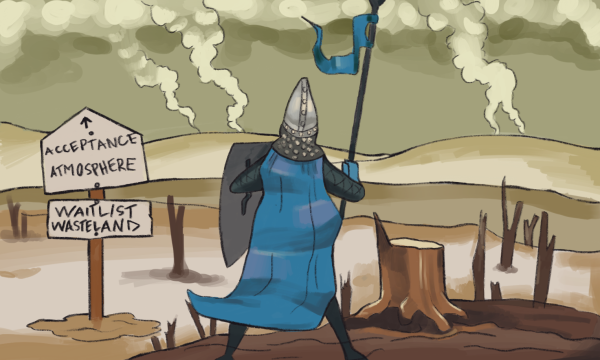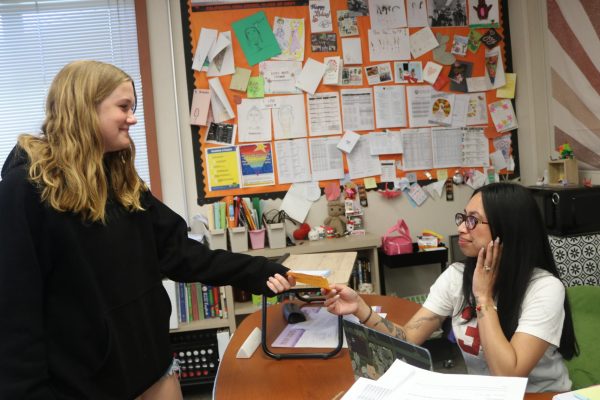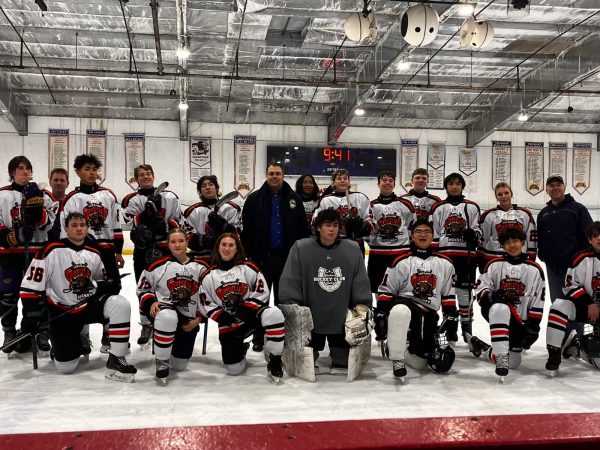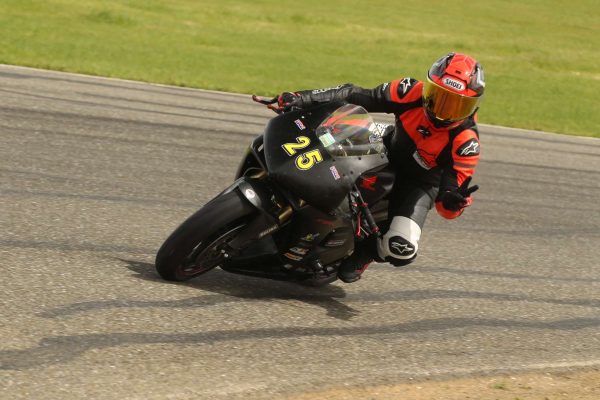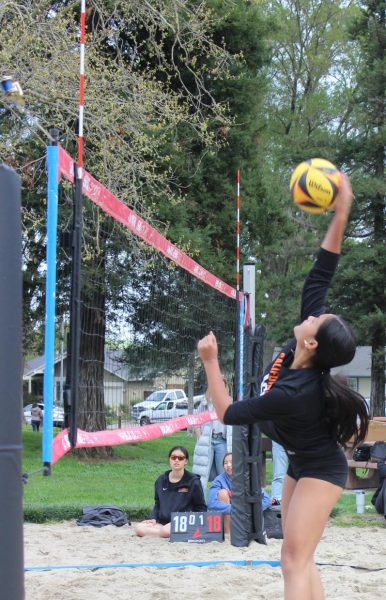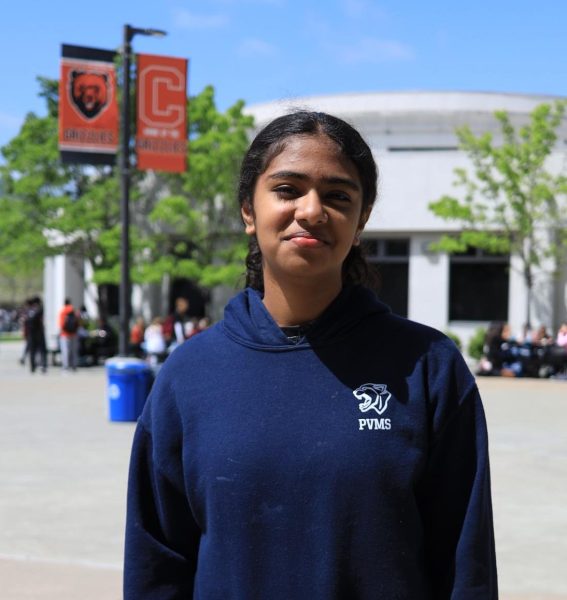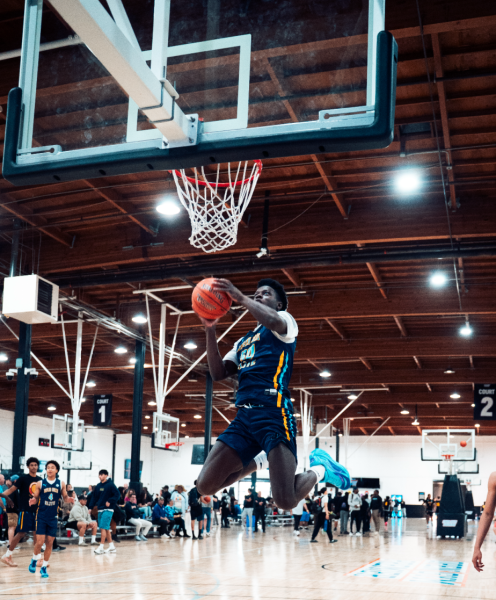Cal welcomes new sports psychologist
Maite Reece helps students with the mental side of being an athlete
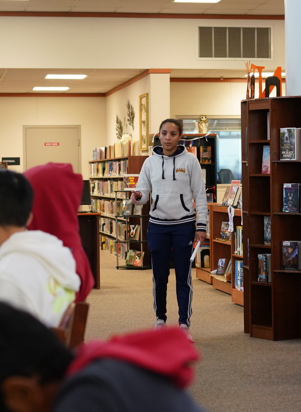
New sports psychologist Maite Reece speaks to members of Cal High’s cross county team during a recent session in the library. Reece, the school’s first sports psychologist, worked with several teams this fall season.
The first part of Maite Reece’s job is to kick the coach out of the room.
This may seem harsh, but Cal High’s new intern sports psychologist says this step is necessary for student athletes to be honest with her.
Reece started working with Grizzly athletes this school year, marking the first time Cal has provided a sports psychologist for its athletes. She meets with students on Wednesdays and Thursdays to discuss various topics to help athletes reach their potential.
“One topic can be confidence, another can be what you can and can’t control or other aspects of mental toughness,” Reece said.
Reece has worked with all three levels of the football program, and the women’s tennis and cross country teams. Although this is the first time Cal has had a sports psychologist on campus, many students and coaches have already seen the positive impact it has left behind.
“[Sports psychology] creates a good environment, especially for a team like cross country,” said junior Audrey Ackerman, who runs for girls varsity cross country.
Added women’s tennis coach Manny Vasquez, “It helps [athletes] see other ways to help with their confidence and game.”
Reece said she has found a stigma around mental health in sports when working with athletes, especially those at the high school level.
“Athletes are taught to be strong and just work through it,” Reece said. “A lot of times when I show up people are like cool, but I don’t need you.”
Reece’s supervisor, Dr. Noah Asch, a licensed clinical psychologist in Walnut Creek, said speaking to a sports psychologist has three main benefits: enhancing performance, coping with the pressures of competition, and mentally recovering from injuries.
“An athlete may seek support from a sports psychologist for anxiety, or a loss of focus during competition,”Asch said. “Sports psychologists can help athletes deal with anxiety, pressures from coaches and parents, and even help athletes adjust to being sidelined after an injury.”
As an active person who played various sports such as softball, soccer, tennis, basketball, and golf, Reece hit a mental blockade while playing sports in high school. To help athletes from having a similar experience, Reece became a sports psychologist.
“I hit a couple of roadblocks when it came to the mental side of the sport,” Reece said. “Because of that, I wanted to be able to help athletes.”
Reece went to Gabrielino High School in Los Angeles and graduated in 2014 before attending Wagner College in New York, where she graduated in 2018 with a degree in sports psychology. Reece was on the varsity softball team for four years during her time at Gabrielino High and led the Eagles to four straight third-place finishes, according to the Wagner College website. Reece continued her softball career at Wagner College.
From the experience she has gained working with teams, Reece found many athletes are anxious about their potential performance in upcoming games. This leads to a spiral of anxious thoughts, which can negatively affect athletes’ performance.
“In general, I would say anxiety is a big one that comes up for athletes,” Reece said. “They start to worry about making a mistake or they can have a lot of negative thoughts.”
To combat this, Reece said athletes should first notice what is making them anxious. Once they know the trigger of their anxiety, Reece helps them use a variety of breathing and mindfulness techniques like visualization and pre-competition routines to relax.
“I would like to learn more specific examples of how to do visualization,” said junior Andrew Pruitt, who runs for boys varsity cross country.
Athletic director Chad Ross is trying to get some other sports teams working with Reece during the winter and spring seasons.
“It is my hope having her on campus for the players to use her as a resource,” Cal’s varsity football coach Danny Calcagno said.
Reece believes that the most important quality that athletes should have is the ability to be vulnerable.
¨It’s super important to be able to be vulnerable with your teammates,” Reece explained. ¨When you put your head down they need to know what that means so they can pick you up.¨
Reece said one of the most important factors to winning is staying mentally locked in.
“I worked with the [Sonoma State] softball team and after a few weeks, I saw a change,” Reece said, “I started to see that difference. I started to see them winning games.”
Reece is excited about building her program and involvement at Cal in the future.
“I think it’s a great program that is slowly picking up traction,” Reece said. “It does take time and work to get people interested, but so far everyone seems open about it.”
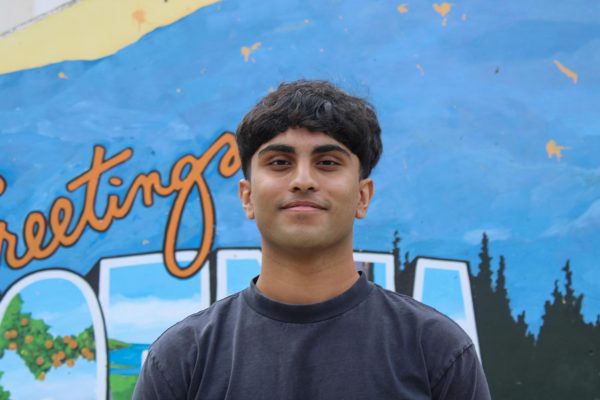
Junior March Chalasani returns for his third year with the Californian newspaper staff. In his free time, he enjoys hanging out with friends, hiking, playing...
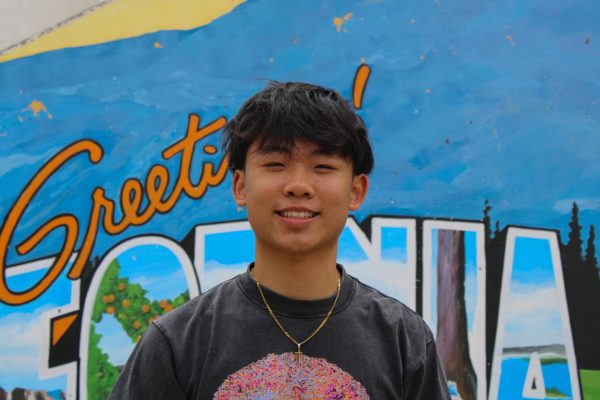
Andrew Chen is a Junior at Cal High and has been doing Newspaper for three years. He enjoys writing about current events and sports relevant to Cal. He’s...
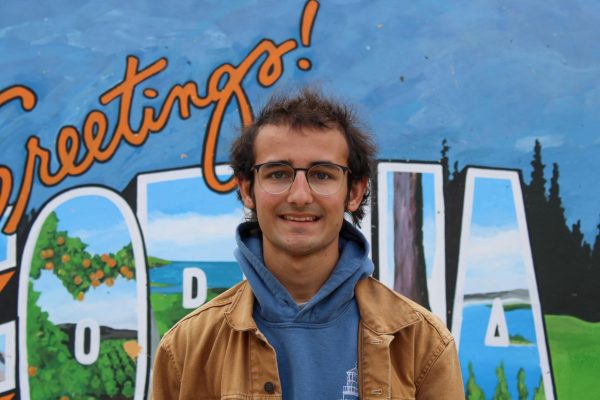
Alexander is a Senior at Cal High and this is his 4th year in newspaper. He Enjoys digital and analog photography. He also runs Cross Country after school....
